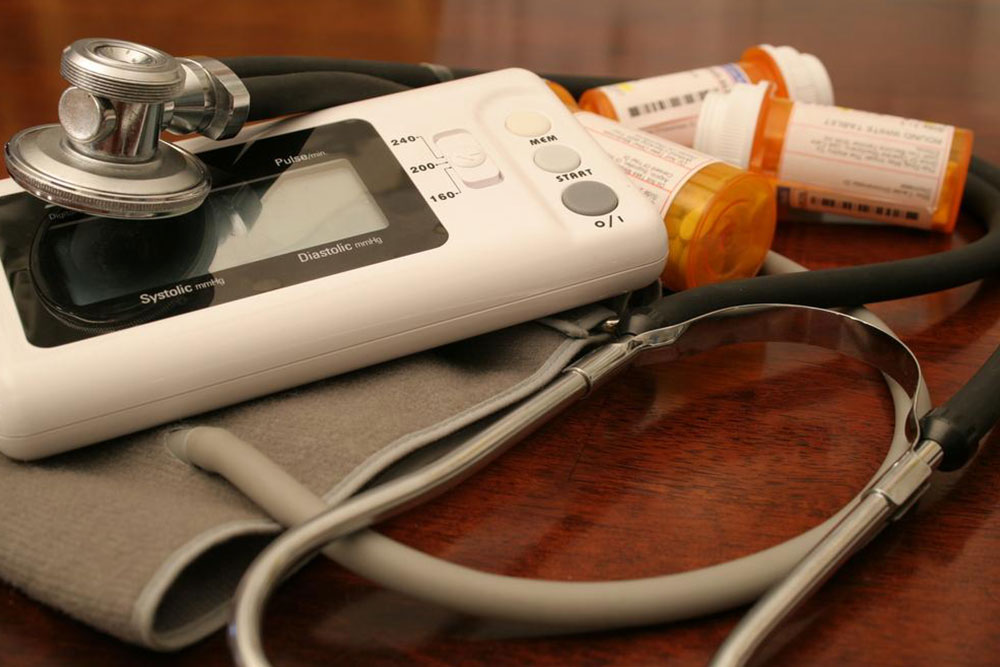Effective Prevention Strategies for Mini Strokes: Protect Your Health Now
This comprehensive guide covers essential preventive strategies for mini strokes, emphasizing lifestyle changes like healthy eating, quitting smoking, regular exercise, and medical management. Early recognition of symptoms and proactive measures can significantly reduce the risk of severe strokes, safeguarding your health long-term. Learn how to implement practical tips to protect your brain and improve overall well-being effectively.

Effective Prevention Strategies for Mini Strokes: Protect Your Health Now
Mini strokes, medically known as transient ischemic attacks (TIAs), are brief episodes of neurological dysfunction caused by temporary interruption of blood flow to the brain. Despite their fleeting nature, they serve as crucial warning signs that a more severe stroke could be imminent if preventive measures are not taken seriously. Understanding how to effectively prevent mini strokes is essential for maintaining overall health and preventing future, potentially life-threatening events.
The human body is a marvel of biological engineering, yet it remains vulnerable to various internal and external factors that can compromise health. While many health conditions are manageable or treatable, prioritizing proactive measures to prevent mini strokes can significantly reduce the risk of long-term damage, disability, or even death. Prevention strategies are especially important because they not only avoid the pain and expense of treatments but also contribute to a better quality of life.
Incorporating key lifestyle modifications can dramatically decrease the likelihood of experiencing a mini stroke. These strategies are evidence-based and focus on improving overall vascular health, reducing risk factors, and promoting healthy habits.
Adopt a Nutritious and Balanced Diet
Diet plays a pivotal role in stroke prevention. An unbalanced diet rich in processed foods, saturated fats, and excess salt can contribute to hypertension, obesity, and high cholesterol—major risk factors for mini strokes. To mitigate these risks, it is essential to prioritize nutrient-dense foods. This includes increasing your intake of fresh vegetables and fruits, which are high in antioxidants, fiber, and essential nutrients that support vascular health.
Reducing salt intake helps maintain healthy blood pressure levels, while limiting sugar consumption prevents weight gain and insulin resistance. Incorporate whole grains, lean proteins, and healthy fats such as omega-3 fatty acids found in fish. Proper nutrition strengthens your body's defenses and promotes optimal functioning of vital organs, especially the heart and brain.
Cease Smoking for Better Vascular Health
Smoking is a leading preventable cause of cardiovascular disease and stroke. Nicotine narrows blood vessels and increases blood pressure, while other chemicals in cigarettes damage blood vessel walls, making them more susceptible to clot formation. The cumulative effect severely raises the risk of mini strokes and arterial blockages.
Quitting smoking is a challenging but immensely rewarding process that can significantly reduce your stroke risk. Support programs, nicotine replacement therapy, and behavioral counseling can aid cessation efforts. A smoke-free life not only benefits your vascular health but also enhances lung capacity, immunity, and overall well-being.
Engage in Regular Physical Activity
A sedentary lifestyle is linked to various health problems, including obesity, hypertension, and dyslipidemia—all of which are key contributors to mini stroke risk. Regular exercise helps maintain a healthy weight, improves blood circulation, and controls blood pressure.
Activities such as brisk walking, swimming, cycling, or yoga, performed for at least 150 minutes weekly, can yield significant health benefits. Exercise also helps manage stress levels and improves mental health. Over time, consistent physical activity reduces the likelihood of developing conditions that predispose you to strokes and enhances the resilience of your cardiovascular system.
Moderate Alcohol Consumption
While moderate alcohol intake might have some cardiovascular benefits, excessive drinking increases the risk of high blood pressure, irregular heartbeat, and weight gain—all factors that elevate the chance of mini strokes. Alcohol can also interfere with medication efficacy in individuals with underlying health conditions.
It is essential to consume alcohol in moderation—according to recommended guidelines, this typically means up to one drink per day for women and up to two for men. Staying within these limits helps maintain healthy blood pressure and reduces unnecessary strain on your vascular system.
Control Underlying Medical Conditions
Chronic conditions like diabetes, high cholesterol, and hypertension significantly increase the risk of mini strokes. These health issues damage blood vessels over time and promote clot formation.
Effective management involves adhering to prescribed medications, regular health check-ups, and lifestyle modifications such as diet and exercise. Controlling blood sugar levels, lowering LDL cholesterol, and maintaining optimal blood pressure are crucial steps in lowering the likelihood of mini strokes.
Recognize and Respond to Early Warning Signs
Mini stroke symptoms can manifest suddenly and include visual disturbances, weakness or numbness on one side of the body, dizziness, difficulty speaking, and loss of coordination. Recognizing these early warning signs is vital for prompt medical intervention, which can prevent a full stroke and associated complications.
If you experience or witness these symptoms, seek urgent medical attention. Early treatment can save lives and prevent long-term disabilities. Educating yourself and your loved ones about stroke warning signs is a key component of preventative health.
In conclusion, preventing mini strokes requires a comprehensive approach centered on lifestyle improvements, medical management, and awareness. Implementing these strategies can significantly lower your risk, safeguard your brain health, and enhance your overall quality of life. Remember, proactive prevention is always better than reactive treatment—invest in your health today for a brighter, safer future.





